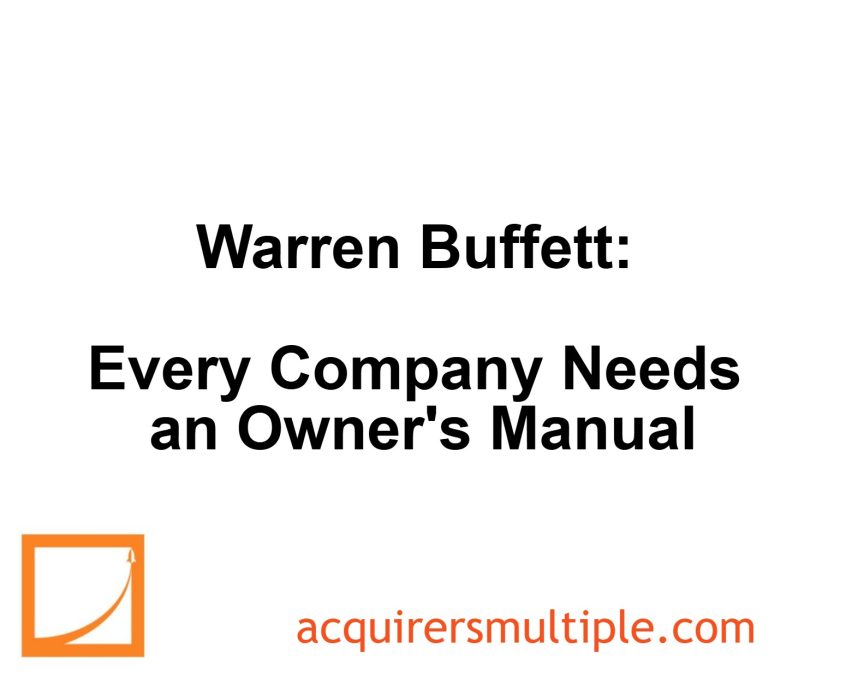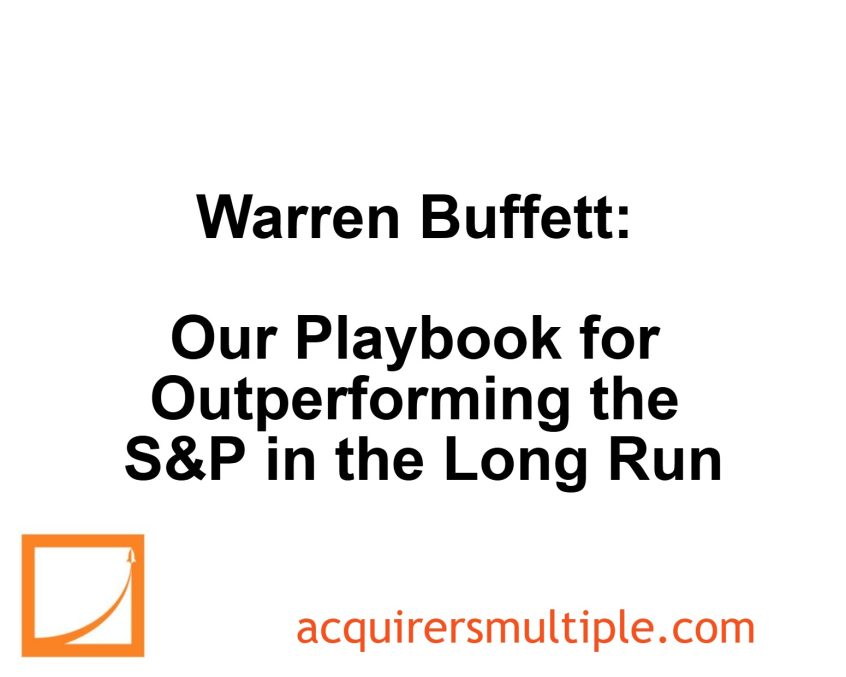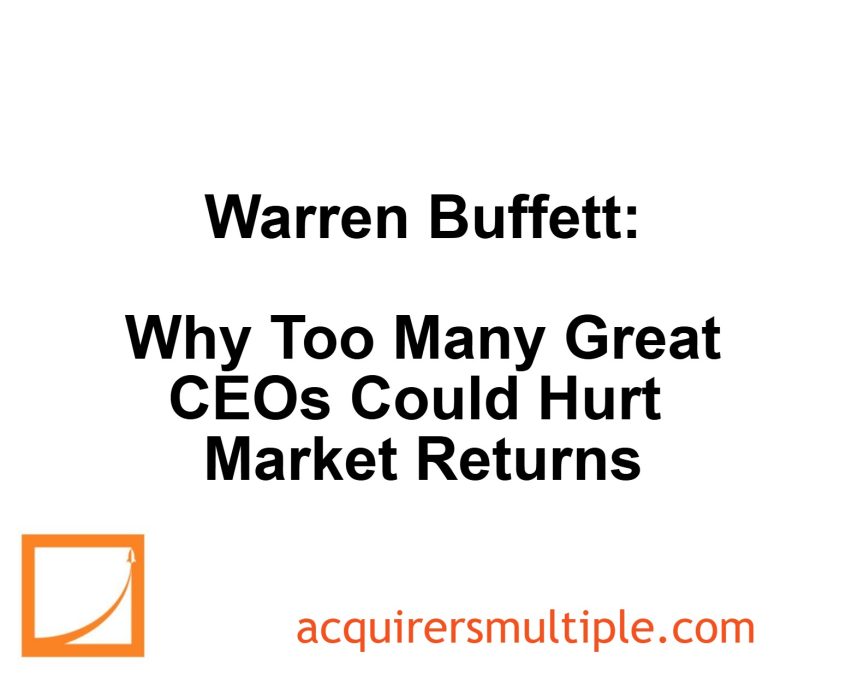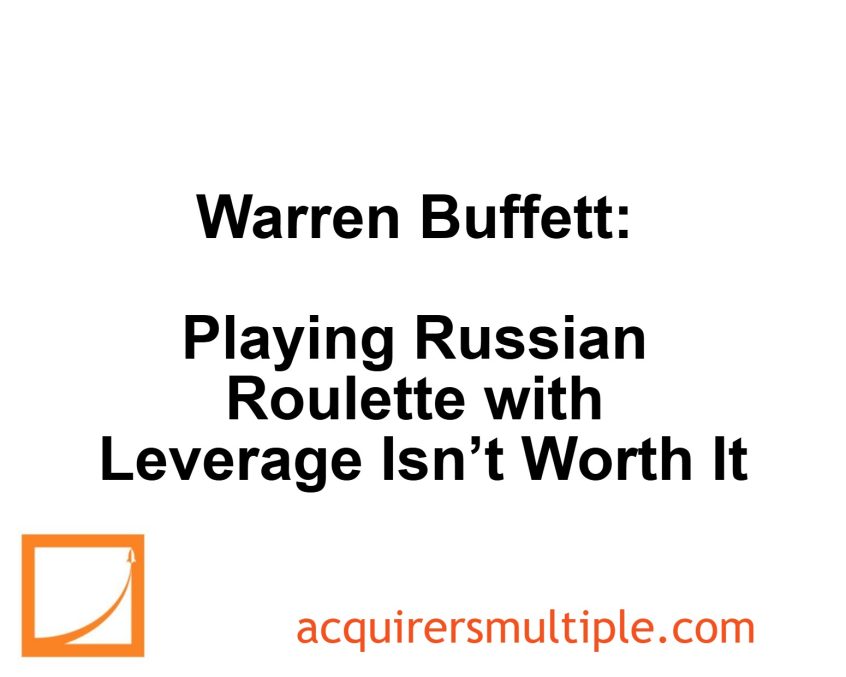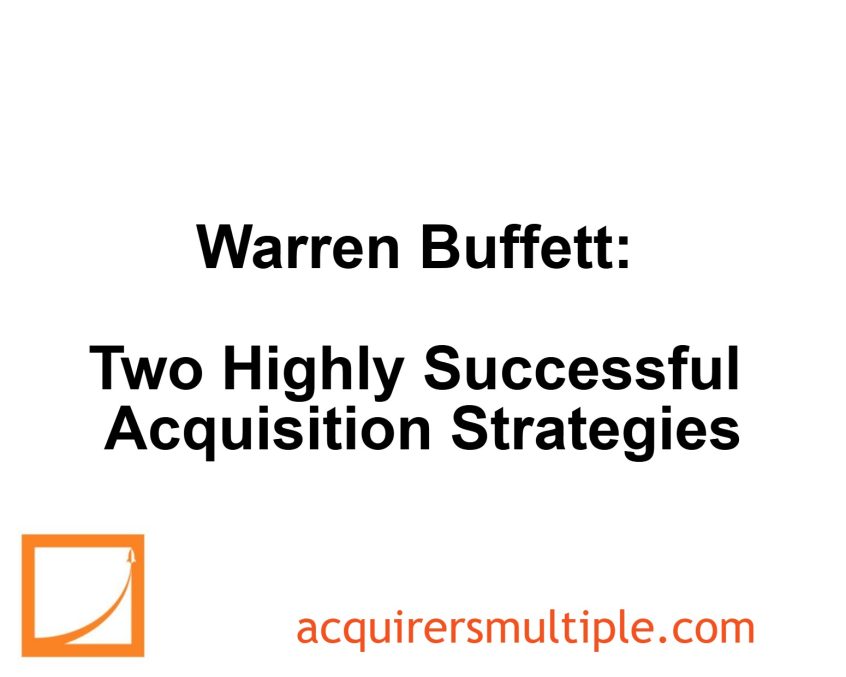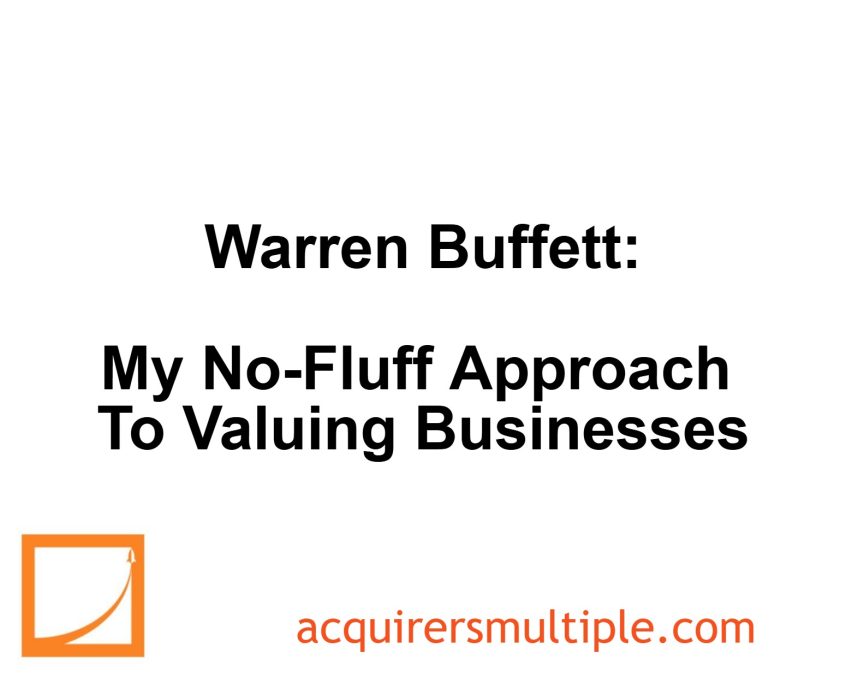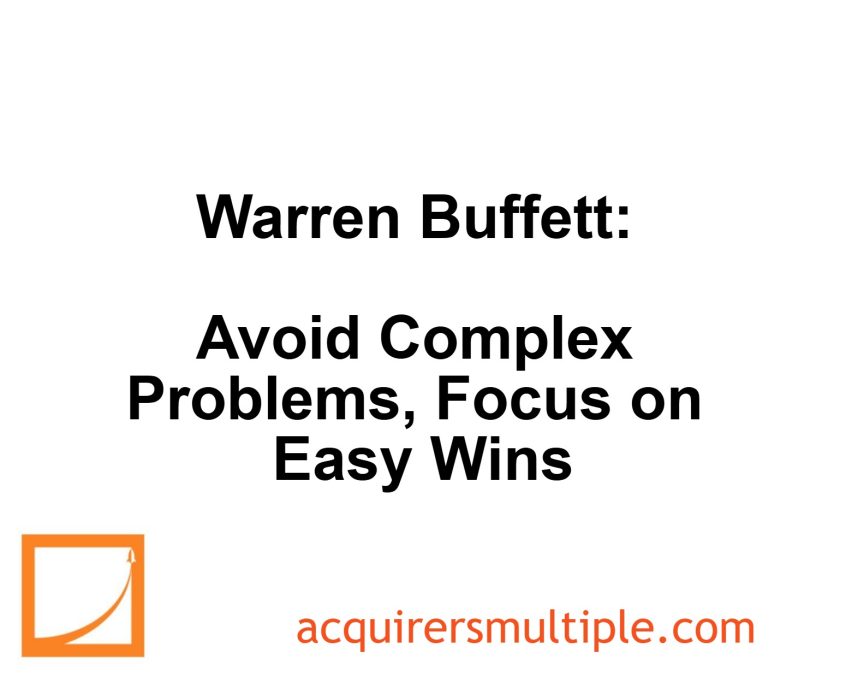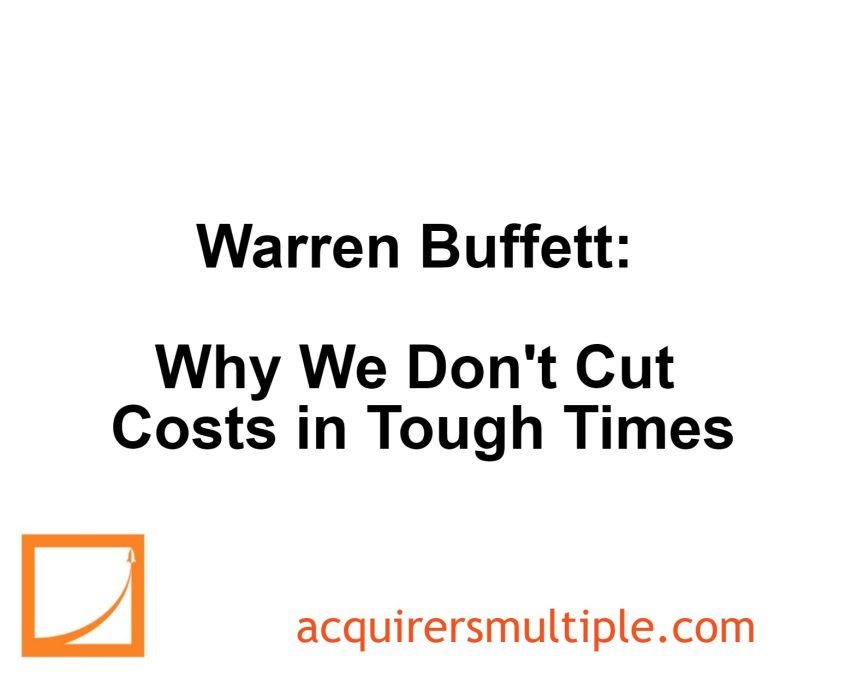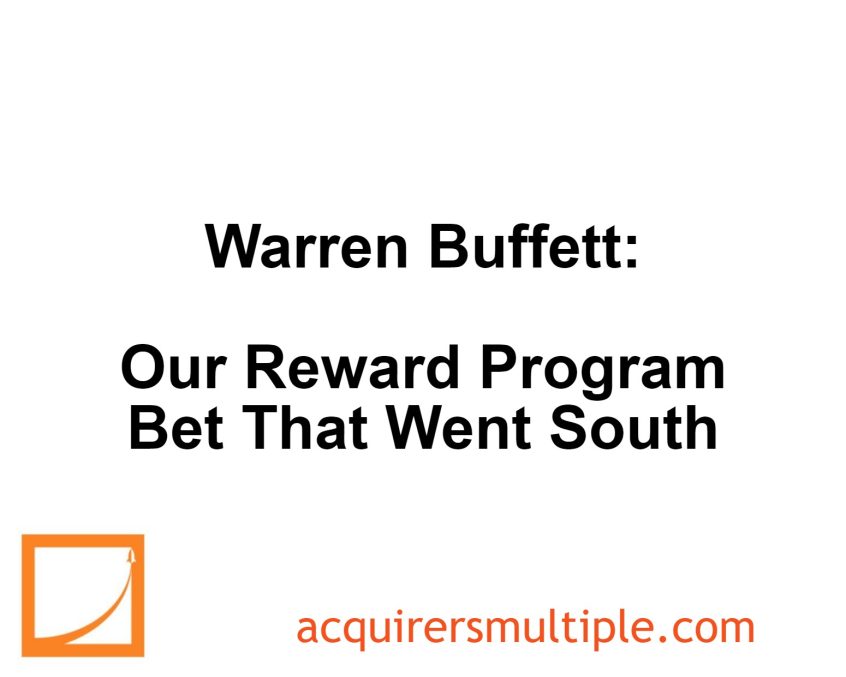During the 2004 Berkshire Hathaway Annual Meeting, Warren Buffett discussed his approval of Google’s adoption of a communication style inspired by Berkshire Hathaway’s Owner’s Manual. He emphasizes the importance of companies being transparent with their investors about their principles and operational approaches. Buffett believes this straightforwardness builds trust, akin to what … Read More
Warren Buffett: Our Playbook for Outperforming the S&P in the Long Run
In his 2013 Berkshire Hathaway Annual Letter, Warren Buffett explains that Berkshire Hathaway’s intrinsic value far exceeds its book value, a gap that has widened over time. This justified a 2012 decision allowing share repurchases at 120% of book value, as such buybacks benefit shareholders by securing shares below intrinsic … Read More
Warren Buffett: Why Too Many Great CEOs Could Hurt Market Returns
During the 1998 Berkshire Hathaway Annual Meeting, Warren Buffett contemplates the impact if all Fortune 500 companies were run by exceptional leaders like Jack Welch. He suggests that, while each individual might excel, competition among 500 “sensational competitors” could lead to a self-neutralizing effect, driving down returns on equity due … Read More
Warren Buffett: Playing Russian Roulette with Leverage Isn’t Worth It
During the 1999 Berkshire Hathaway Annual Meeting, Warren Buffett discussed Berkshire Hathaway’s caution against excessive borrowing, explaining that while moderate debt might have increased their wealth, substantial borrowing could have led to trouble. He highlights how many intelligent investors consistently use risky, leveraged instruments, especially with others’ money. Buffett references … Read More
Warren Buffett: Two Highly Successful Acquisition Strategies
In his 1981 Berkshire Hathaway Annual Letter, Warren Buffett describes two successful acquisition strategies. The first targets businesses that thrive in inflation, possessing pricing power and minimal capital needs to scale. However, these businesses are rare and fiercely sought after, driving up competition. The second strategy depends on exceptional managers … Read More
Warren Buffett: My No-Fluff Approach To Valuing Businesses
During the 1994 Berkshire Hathaway Annual Meeting, Warren Buffett advises caution regarding business projections and inflated valuations, suggesting that genuine value assessment requires essential, straightforward data. He emphasizes that Berkshire Hathaway’s reports contain all the critical numbers that he and Charlie Munger use to evaluate investments, encouraging investors to independently … Read More
Warren Buffett: Avoid Complex Problems, Focus on Easy Wins
In his 1989 Berkshire Hathaway Annual Letter, Warren Buffett discusses the value of focusing on simple, solvable opportunities rather than tackling complex business challenges. He reflects on his and Charlie Munger’s investment philosophy, which prioritizes “one-foot hurdles” — easy-to-understand, lower-risk ventures. While difficult problems sometimes require attention and can lead … Read More
Warren Buffett: How We Make Money Without Lifting a Finger
In his 2023 Berkshire Hathaway Annual Letter, Warren Buffett discusses Berkshire Hathaway’s long-term investments in Coca-Cola and American Express, which have been held for over two decades. While these positions are smaller compared to Apple, they remain significant assets. Both companies, founded in the 19th century, overcame past mismanagement and … Read More
Warren Buffett: The Dangers of “I’m Rich, Therefore I’m Right!”
During the 2003 Berkshire Hathaway Annual Meeting, Warren Buffett reflects on the responsibility of public figures, particularly wealthy individuals, when sharing opinions on public policy. He acknowledges his own involvement in issues like campaign finance reform and taxes but tries to limit his public commentary to avoid the perception of … Read More
Warren Buffett: Why We Don’t Cut Costs in Tough Times
In his 1987 Berkshire Hathaway Annual Letter, Warren Buffett discusses his management philosophy regarding flexible budgets and cost-cutting. He emphasizes the importance of maintaining the quality of a business, regardless of short-term fluctuations in profit. Using examples from The Buffalo News and See’s Candies, Buffett rejects the notion of reducing … Read More
Warren Buffett: Growing Tribalism in Society Is Concerning
During the 2022 Berkshire Hathaway Annual Meeting, Warren Buffett reflects on the growing tribalism in society, comparing it to the partisanship he observed during his youth when Roosevelt was either loved or hated. He explains how tribal behavior can be fun, using his loyalty to Nebraska football as an example, … Read More
Warren Buffett: If I Had $10,000 To Invest Today
During the 1999 Berkshire Hathaway Annual Meeting, Warren Buffett discussed the importance of starting young in investing, comparing the process to rolling a snowball down a long hill, where compound interest plays a key role. He advises focusing on smaller companies for those starting with limited funds, as they are often … Read More
Warren Buffett: Our Reward Program Bet That Went South
In his 2006 Berkshire Hathaway Annual Letter, Warren Buffett reflects on his and Charlie Munger’s early venture into the rewards business by purchasing Blue Chip Stamps in 1970. At the time, the trading stamp company was thriving with $126 million in sales and widespread popularity. However, despite initial optimism, the … Read More
Warren Buffett: The Key to Great Investing: Insulating Thoughts and Emotions
In his 1987 Berkshire Hathaway Annual Letter, Warren Buffett emphasizes that investment success comes from sound business judgment and resisting emotional market influences. He advocates following Ben Graham’s “Mr. Market” concept, focusing on a company’s operating results rather than short-term stock price movements. Buffett highlights that while the market may … Read More
Warren Buffett: Why Portfolio Concentration Decreases Risk
In his 1993 Berkshire Hathaway Annual Letter, Warren Buffett explains that he and Charlie Munger decided long ago to focus on making a few smart investment decisions rather than many, especially as Berkshire Hathaway’s capital grew. They adopted a concentrated portfolio strategy, rejecting standard diversification advice. They believe that concentrating … Read More
Warren Buffett: Don’t Wait for a Price Drop to Buy a Great Company
During the 1996 Berkshire Hathaway Annual Meeting, Warren Buffett discussed the value of investing in truly great companies that will remain strong for decades. He advises against trying to time the market or waiting for a financial crisis to buy stocks at a discount, as great companies are rare and … Read More
Warren Buffett: The Irrationality of Stop-Loss Orders in Investing
During the 1994 Berkshire Hathaway Annual Meeting, Warren Buffett recounts a conversation with NYSE specialist Jimmy Maguire about stop-loss orders on Berkshire Hathaway stock. He expresses confusion over why some investors would set a stop-loss order to sell at $15,500 when they wouldn’t sell at $16,000, highlighting the irrationality of … Read More
Warren Buffett: Why I Transitioned From Cigar Butts to Quality Companies
In his 1989 Berkshire Hathaway Annual Letter, Warren Buffett critiques the “cigar butt” investment approach, where buying a struggling company at a bargain price might yield short-term profit but ultimately disappoints due to mediocre long-term performance. He warns that initial advantages can be eroded by ongoing business issues and low … Read More
Warren Buffett: The Best Investment Strategy When Opportunities Are Scarce
In his 2003 Berkshire Hathaway Annual Letter, Warren Buffett discusses his concerns about the U.S. economy and Berkshire Hathaway’s strategy to hedge its significant cash-equivalents position with foreign-exchange contracts. These contracts are subject to accounting rules that require any changes in value to be recorded quarterly, even if they haven’t … Read More
Warren Buffett: The Hidden Benefits of Falling Stock Prices
In his 1997 Berkshire Hathaway Annual Letter, Warren Buffett advises that if you are a net saver, you should prefer lower stock prices, as this benefits future investments. Many investors mistakenly rejoice at rising stock prices, even though they will be net buyers of stocks, which makes no sense. For … Read More

